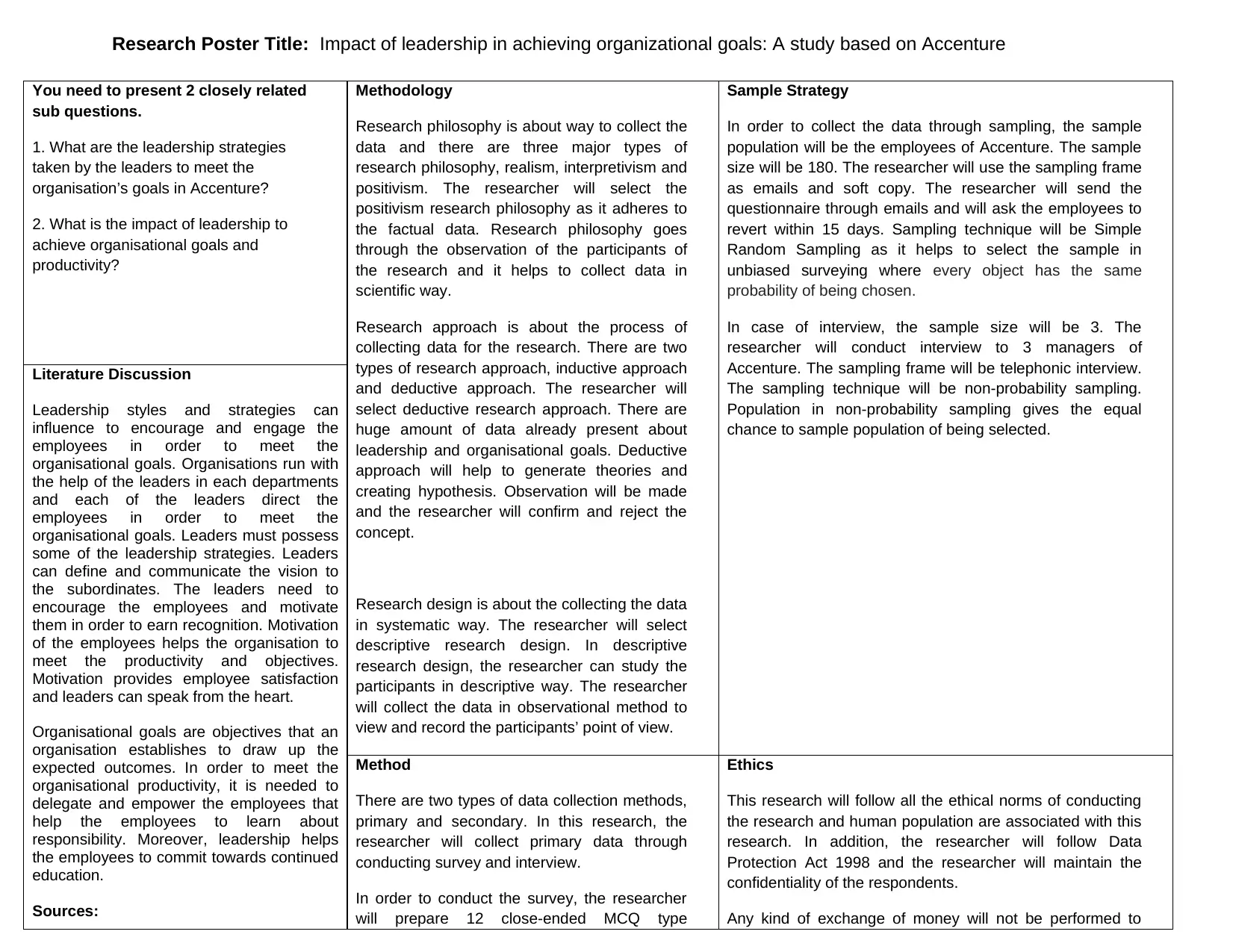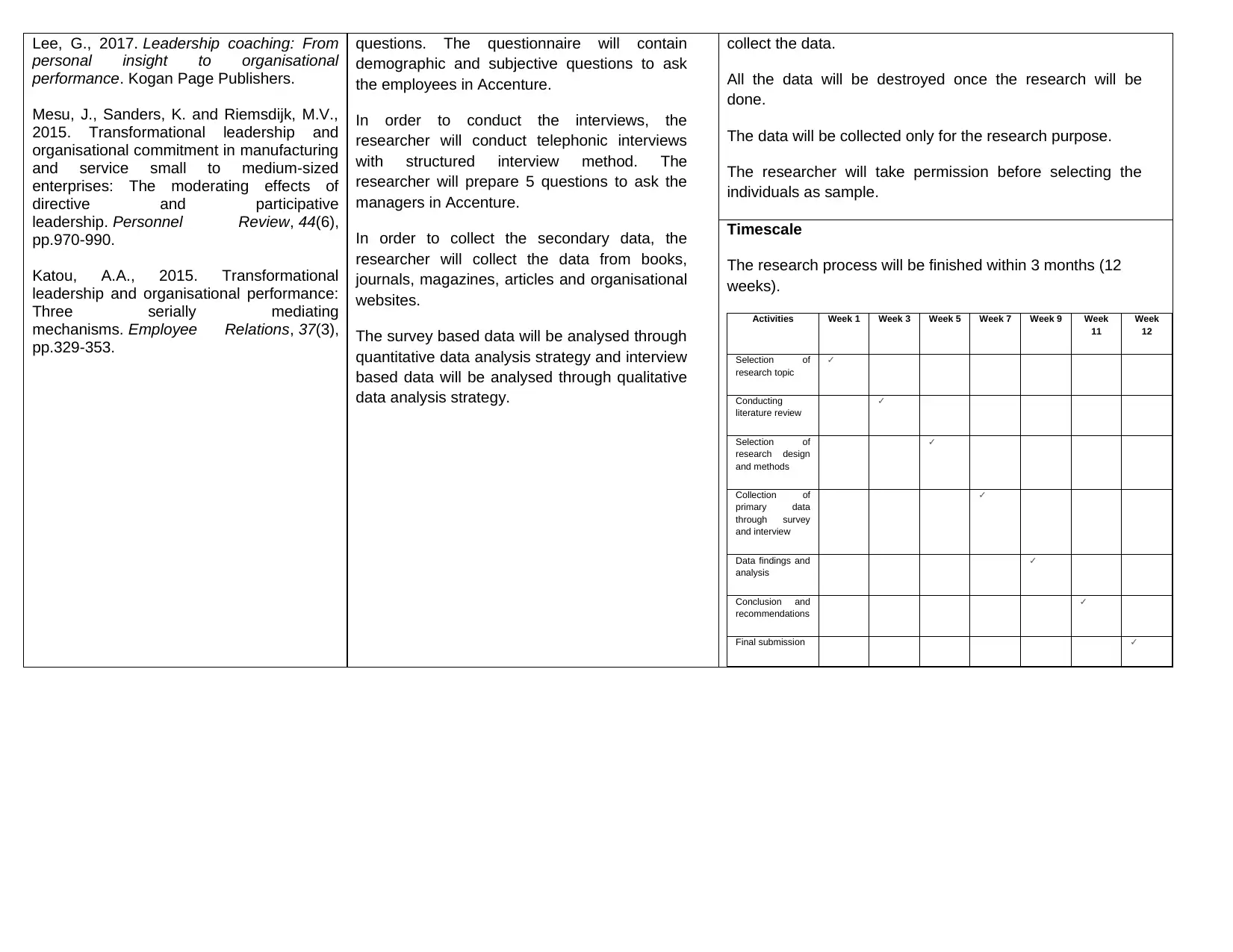A Study on Leadership's Impact on Organizational Goals at Accenture
VerifiedAdded on 2021/04/21
|2
|1226
|50
Report
AI Summary
This report investigates the impact of leadership strategies on achieving organizational goals and productivity within Accenture. The research utilizes a positivism research philosophy and a deductive approach, employing both surveys and interviews to collect primary data from employees and managers. A descriptive research design is used to systematically collect and analyze data. The report explores leadership styles, their influence on employee motivation and organizational commitment, and the importance of delegation and empowerment in achieving objectives. The methodology includes quantitative analysis of survey data and qualitative analysis of interview responses. Ethical considerations, including data protection and confidentiality, are also addressed. The study examines how leadership shapes vision, encourages employee engagement, and contributes to overall organizational success. The report also includes a literature review that covers various leadership styles and their impact on organizational commitment and performance.
1 out of 2








![[object Object]](/_next/static/media/star-bottom.7253800d.svg)